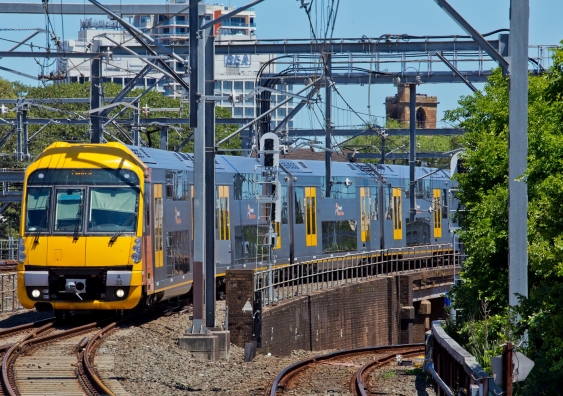How Sydney house prices affect the regions
There is more nuance in the city-regions property price relationship than you might expect.
There is more nuance in the city-regions property price relationship than you might expect.

Nadia Razzhigaeva
UNSW Arts Design & Architecture News & Content Coordinator
02 9348 1229
n.razzhigaeva@unsw.edu.au
It is common knowledge that priced-out households migrate from Sydney to the coastal regions of NSW – this type of migration has taken place for decades.
But few analyses have been able to explain exactly how migration from Sydney’s heated property market impacts regional property prices.
Associate Professor Chyi Lin Lee, a housing economist at the School of Built Environment at UNSW Sydney, has co-authored a , analysing over 30 years of data to investigate the link between house prices in some coastal regions of NSW and Greater Sydney.
“Our analysis is the first to explain house price movements in the regions surrounding Sydney using in-depth data,” says A/Prof. Lee.
“Our findings show that a few factors like travelling time, distance and net migration determined whether a regional area’s house prices moved in similar ways to Sydney’s.”
Interest rates, GDP and population growth are market fundamentals that are always at play and impacting housing markets. This study’s point of difference is that it considered deeper factors that impact regional housing markets, like connectivity and housing supply.
“Besides market fundamentals, we found that connectivity plays a vital role in whether a region’s housing market becomes pinned to Sydney’s housing market,” says A/Prof. Lee.
“For example, cities in the Illawarra region like Wollongong, Shellharbour and Kiama are directly pinned to Greater Sydney house prices – meaning that if prices go up or down in Sydney then we can expect to see its impact on these regional places.”
On the other hand, the researchers found no comparable evidence for house prices in the Hunter region.
The results suggest that improved transport connections like highways and public transport between Illawarra and Sydney CBD create the conditions for a strong house price link between the places.
Meanwhile, regions that do not have good connectivity with Sydney CBD are more likely to be affected by economic factors outside of Sydney.
“An implication of our analysis is that regions that improve their connectivity to CBDs can expect an increase in the value of properties and land,” says A/Prof. Lee.

Regions with good connectivity to Sydney can expect to have property prices pinned to Sydney's housing market. Photo: Shutterstock.
Historically, much attention has been paid to how property prices operate in the major cities of Australia and there’s been less interest in how the property prices function in the regions.
“Our study is the first to turn attention to the regions,” says A/Prof. Lee. “It is one of the few analyses that investigate exactly how regions link up to major cities.
“With a deep range of data dating back to 1991, our findings validate what is observed anecdotally with hard data explanations.”
Given the recent market corrections taking place in Sydney, the findings can give people in the surrounding regions some idea of what to expect, says A/Prof. Lee.
There is an assumption that developments in large economic hubs like Sydney CBD automatically flow-on and affect the surrounding regional cities.
However, what this analysis shows is that there is more nuance and even a limit to how big cities affect regional house prices.
"Our findings could also inform housing policymakers that seek to create regionally balanced cities across a state,” says A/Prof. Lee.